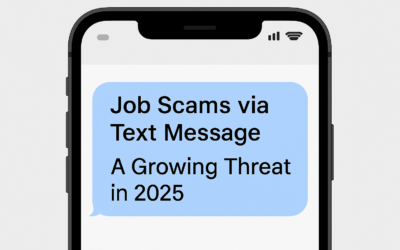With pandemic-related relief either ending or exhausted, debt totals are creeping up for Americans.
Credit card balances jumped by $17 billion to $800 billion for the third quarter of this year, according to a report from the Federal Reserve Bank of New York’s Center for Microeconomic Data. The rise in credit card debt is reversing the pandemic trend that saw consumers spending less and paying down their balances.
The financial anxiety is particularly pronounced for Generation Z, ages 13 to 24. A new survey found that 37 percent of these young adults said their own or their family’s finances were a major source of stress, according to a recent survey by the Associated Press-NORC Center for Public Affairs Research.
Next year could see more people in debt and being chased by debt collection companies that now have new ways to find debtors. Here’s what you need to know about your rights.
Is it true that a debt collector can contact me via my social media account?
Yes, that request to connect on Facebook, Twitter or Instagram could very well be from a debt collection company.
New rules adopted by the Consumer Financial Protection Bureau (CFPB), which took effect Nov. 30, lay out how and when debt collectors can contact you about a debt you may owe.
An update to the Fair Debt Collection Practices Act allows debt collectors to track down folks on their social media accounts, in addition to using email and text messages.
If you are contacted on one of the social media platforms, the debt collector has to send you a private message and make it clear that they are attempting to collect a debt.
Messages must be sent at a “reasonable time” similar to the 8 a.m. to 9 p.m. limitation for phone calls, said Linda Sherry, director of national priorities for Consumer Action.
Can the debt collector post something about my debts online?
The rule change is supposed to protect your privacy. The debt collector can’t post something that can be seen by the general public, your contacts, friends or followers. For example, the debt collector couldn’t comment on your profile page indicating that you owe a debt.
What proof does a debt collector have to provide me that I owe the debt?
When a debt collector initially communicates with you, or shortly thereafter, the company is generally required to provide certain information about the debt, according to the CFPB.
This “debt collection validation notice” should include enough information to help you figure out if you owe the debt. Included in what they should send you is the following information, the CFPB says:
— The name of the debt collector and mailing information.
— Information about the creditor and any account number associated with the debt.
It’s possible you may not realize you owe money because the notice isn’t coming from the original creditor. You should get enough details to help you recognize or verify the debt is accurate. The notice should have a form that you can send back to dispute the debt or take other actions.
— An itemization of the current amount of the debt, including interest, fees and payments you’ve made.
If I don’t want to be contacted, is there a way to stop receiving messages?
Under the new rules, the debt collector must give you a “simple way” to opt out of receiving future communications through your social media account, according to the CFPB.
You have the right to tell debt collectors not to contact you by email, text message or any other means of communication, the CFPB points out.
However, this does not mean the debt goes away. The debt collector may still be able to pursue court action.
The CFPB has a sample letter you can use to request a stop to the communication. Go to consumerfinance.gov and search for “What should I do when a debt collector contacts me?”
A debt collector, with limited exceptions, cannot send an email to an email address the company knows is an employer-provided email address, a CFPB spokeswoman said.
How can I be sure that a message isn’t from a scammer?
Here’s where things can get tricky and how a scammer can trick you into sending them money or divulging personal information.
“Being able to contact people via social media accounts is very concerning to us,” Sherry said. “A lot of spammers and scammers are using text messages, so people need to be very cautious.”
Sherry recommends that you don’t click on any links in an email, text message or respond to a direct message until you have independently verified the debt collector is legitimate.
How often can the debt collector call me?
Under the Debt Collection Rule, a debt collector contacting you on the telephone can’t call more than seven times within a seven-day period per debt, or within seven days after speaking with you on the telephone. If you don’t ask a company to stop communicating with you, the rule doesn’t put a limit on the number of emails, text messages or contacts on social media that can be made, Sherry points out.
How soon can a debt collector send information about a debt to the credit bureaus?
To try to end an unscrupulous and illegal practice of “parking” debts on people’s credit reports to pressure them into making payments, debt collectors must disclose debt details before they report any information to a credit bureau, Sherry said.
The rule bans the practice of reporting a debt to a consumer reporting agency without first informing the consumer of the debt’s existence, the CFPB said. Often, people don’t realize the fake or questionable collection action is on their credit report until they apply for a loan.
The new rule also prohibits debt collectors from suing (and threatening to sue) to collect a time-barred debt, the CFPB points out.
Even if the debt is yours, and the company can prove it, it doesn’t give them the right to harass you. So, If you’re having an issue with debt collection, submit an online complaint to the CFPB or call 855-411-2372.
—
Michelle Singletary, “Yes, debt collectors can now contact you on social media. No, they can’t post that you owe money.” The Washington Post, faq-new-debt-collection-rules/





0 Comments